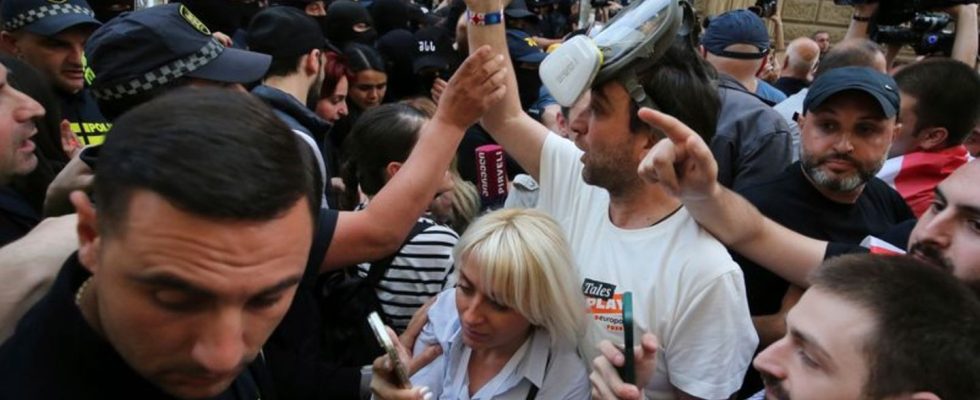Georgia
New protests after second reading of controversial law
Three readings are necessary for the law to be approved. Prime Minister Iraqi Kobachidze has already announced that the third reading will be held in two weeks despite the ongoing protests. photo
© Zurab Tsertsvadze/AP/dpa
The ex-Soviet republic of Georgia wants to join the EU. At the same time, the government is striving for greater control of civil society. A controversial law has now cleared another hurdle.
83 of the 150 members of parliament voted for the controversial legislative initiative. 23 voted against. Three readings are necessary for the law to be approved. Prime Minister Iraqi Kobachidze has already announced that the third reading will be held in two weeks despite the ongoing protests. Another two weeks later, parliament will override President Salome Zurabishvili’s expected veto against the law, he said at a press conference.
Tough police action
The planned law requires that non-governmental organizations that receive more than 20 percent of money from abroad must account for its origin. Many projects to promote democracy in the ex-Soviet republic work with money from EU countries or the USA. The ruling Georgian Dream party speaks of greater transparency. Critics expect the law to be misused, as in Russia, to stop money flows and persecute pro-Western forces. The Georgian Dream party, which has been in power since 2012, is becoming increasingly authoritarian ahead of the parliamentary elections in the fall. The pro-European demonstrators fear that this course will endanger the hoped-for accession to the EU.
The Interior Ministry justified the police’s crackdown on the demonstrators by saying they had tried to break down the doors of parliament. To restore order, the officials used pepper spray and water cannons, among other things, the ministry said on Wednesday evening. There have been repeated violent clashes between security forces and protesters in the past few days.
EU Commission President Ursula von der Leyen expressed concern about the renewed escalation. “I am following the situation in Georgia with great concern and condemn the violence on the streets of Tbilisi,” she wrote on the X network (formerly Twitter). “Georgia is at a crossroads. It should consistently continue on its path to Europe.”

